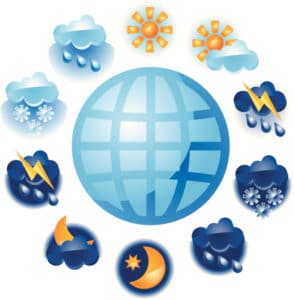
How Humidity Affects Air Conditioning and Heating
Humidity plays a major role in home comfort throughout the year. Excessively high or low moisture levels may greatly increase the cost of operating an HVAC system. They can also create other problems, such as musty smells. Fortunately, sophisticated heating and cooling equipment features dehumidifiers and humidifiers that maximize comfort at an affordable cost. How Humidity Affects Air Conditioning During hot weather, humid air creates an unpleasant, muggy atmosphere. This makes it feel considerably warmer, and people become more likely to sweat without heavy exertion. Windows may get foggy and the air might seem musty or clammy. This situation could result in higher energy bills that fail to yield sufficient indoor comfort. It may also promote mold growth in extreme circumstances. One of the main reasons that air conditioners work better than fans is that they extract humidity from the air. Unfortunately, many systems cannot adequately perform this task in very humid conditions. This problem may be exacerbated by an unnecessarily large air conditioner. The good news is that dehumidifiers can be integrated into HVAC systems in a way that reliably and automatically eliminates humidity. How Humidity Affects Heating The cooler months bring weather that often has the opposite effect. Low humidity


